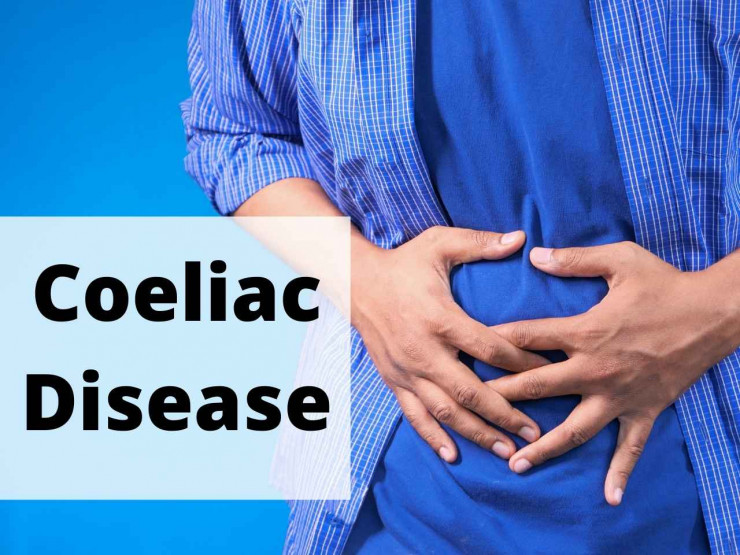Did you know that coeliac disease affects around 1 in 100 people in the UK?
This autoimmune condition means that the person must avoid gluten if they want to prevent long-term damage to their digestive system and avoid the uncomfortable and often debilitating symptoms.
This UK Coeliac Awareness Week (10th - 15th May 2022), we want to help raise awareness of the condition so that more children and adults can deal with their symptoms and live a rich and fulfilling life.
Keep reading to find out what coeliac disease is, the symptoms, who it affects and what you can and can’t eat. We’ll also answer some of your questions and share some useful resources that you can use if you need to learn more.
What is coeliac disease?
Coeliac disease is an autoimmune condition that causes damage to the tissues of your digestive system.
It’s caused when your immune system believes that gluten (a protein found in wheat, rye, and barley) is a threat to your body and mistakenly attacks the tissues in your digestive system.
This causes long-term damage to the lining of your gut and makes it harder for your body to absorb vital nutrients.
If left undiagnosed or untreated, it can increase your risk of developing osteoporosis, iron-deficiency anaemia, and vitamin B12 and folate deficiency anaemia. It can also increase your risk of certain cancers and cause problems during pregnancy, although this is less common.
What are the symptoms of coeliac disease?
Eating foods that contain gluten can trigger a range of symptoms including:
● Stomach-ache
● Diarrhoea
● Indigestion
● Constipation
● Bloating and flatulence
● Fatigue
● Unintentional weight loss
● Dermatitis herpetiformis (an itchy rash)
● Problems getting pregnant
● Nerve damage
● Disorders that affect coordination, balance, and speech
● Delayed puberty and slow growth (in children)
Who does coeliac disease affect?
Coeliac disease can affect both children and adults.
Children often develop symptoms around 6-9 months old when foods containing wheat or gluten are introduced into their diet. Because it can cause delayed growth and puberty, any symptoms should be checked out by the doctor as soon as possible.
Adults can also develop coeliac disease, most commonly between the ages of 40 and 60 although it’s often undiagnosed or misdiagnosed as IBS. Like many other autoimmune conditions, it’s three times more likely to affect women than men.
If you suffer from certain conditions such as autoimmune thyroid disease and type 1 diabetes, you have an increased risk of developing coeliac disease.
Coeliac- What can, and can’t you eat?
To treat coeliac disease, you should follow a gluten-free diet to reduce your symptoms and allow your gut to heal.
Here at Whitworth Pharmacy, we prefer to focus on the positives and think about what you can eat first, before thinking about what is off the menu. Here’s a quick rundown of both.
What you can eat
On a gluten-free diet, you can eat any naturally gluten-free foods such as:
● Fruits and vegetables
● Meat
● Fish
● Rice
● Lentils
● Potatoes
You can also enjoy beverages (in moderation) such as:
● Water
● Fruit juice
● Tea
● Coffee
● Fizzy drinks
● Flavoured water
● Cider
● Wine
● Sherry
● Spirits
● Port
● Liqueurs
What to avoid
Focus on avoiding grains that contain gluten. This includes:
● Barley
● Bulgar wheat
● Couscous
● Durum wheat
● Pearl barley
● Rye
● Semolina
● Spelt
● Wheat
You should also avoid flours made from wheat, rye or barley including plain flour, self-raising flour, etc and porridge oats that are not labelled gluten-free.
When it comes to processed foods, avoid the following:
● Oat milk and oat-based snacks that are not labelled gluten-free
● Biscuits, bread, cakes, chapattis, crackers, muffins, pastries, and pizza bases made from wheat, rye or barley flour
● Muesli and wheat-based breakfast cereals
● Canned, dried, and fresh wheat noodles and pasta
● Any food in batter, breadcrumbs or dusted with flour including meat, poultry, fish, shellfish, vegetables, potatoes, fruit
● Snacks made from wheat, rye or barley including pretzels and breadsticks
● Taramasalata
● Chinese soy sauce
● Ice cream cones and wafers
● Liquorice sweets
● Puddings made using semolina or wheat flour
● Batter mixes, breadcrumbs, and stuffing mix
Finally, avoid the following drinks as they too contain gluten.
● Barley waters and squash
● Malted milk drinks
● Ales, beers, lagers, stouts
For more dietary guidelines, visit the Coeliac UK website.
Coeliac disease FAQs
What causes coeliac disease? Coeliac disease happens when your body reacts to gluten, a protein found in wheat, rye, and barley.
Does coeliac run in families? Yes, it can. If close family members such as your mother, father, sister or brother have it, you have a 1 in 10 chance of developing coeliac disease too.
Can coeliac disease be cured? Coeliac disease can usually be controlled by following a gluten-free diet. However, there currently isn’t a cure.
Are coeliac and gluten-free the same? No. If a person with coeliac disease eats gluten, their body’s immune system will attack their digestive system and cause long-term damage to the body. If the gluten-intolerant or gluten-free person eats gluten, they can suffer from short term symptoms such as bloating and stomach aches.
Where can I go for more information on coeliac disease? For more help or info on coeliac disease, visit your local pharmacy or visit Coeliac UK or the NHS website.



